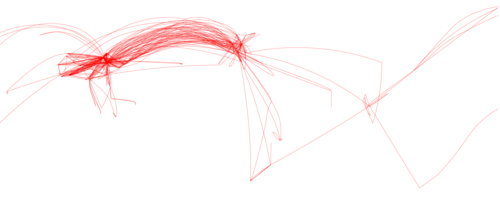Spring 2017 LA436: WET AND DRY, River Patterns and Human Settlement, University of Illinois at Urbana-Champaign, USA
Project Location: Cape Girardeau, MO, USA
This project investigates how urban flood protection along the Mississippi River can be turned into adaptive, proactive social infrastructure.
Floodwalls along the Mississippi River provide vital flood protection to its urbanized areas, while at the same time creating a giant barrier that closes off these cities to the water. RIVER_SPACE imagines swales serving to relieve pumping stations; the floodwall as an urban promenade; terraced vegetation (bio_bluffs); and, repurposed river barges (bio_barges) that adjust with current water levels. This project seeks to reconnect the river with the city, creating new recreational opportunities while generating energetic and resilient spaces. While imagined as a framework that can be applied to any urbanized urban area, RIVER_SPACE illustrates how this project could be applied to Cape Girardeau. In each river city’s quest for reinvention and attracting people and businesses, this project seeks to bring new interest to the riverfront, spurring development and activity in each city, while being mindful of water management with impending climate change.
Project Background Current flood protection measures in urbanized areas along the Mississippi River in Missouri, USA.
Performance Through Various Water Levels
RIVER_ SPACE The Third Space of the City.
BIO_BARGES Repurposing river barges for ecological performance.
BIO_BARGES The various biomes found along the Mississippi River in Missouri are planted in each barge.
BIO_BARGES Creating habitat for migratory animals.








